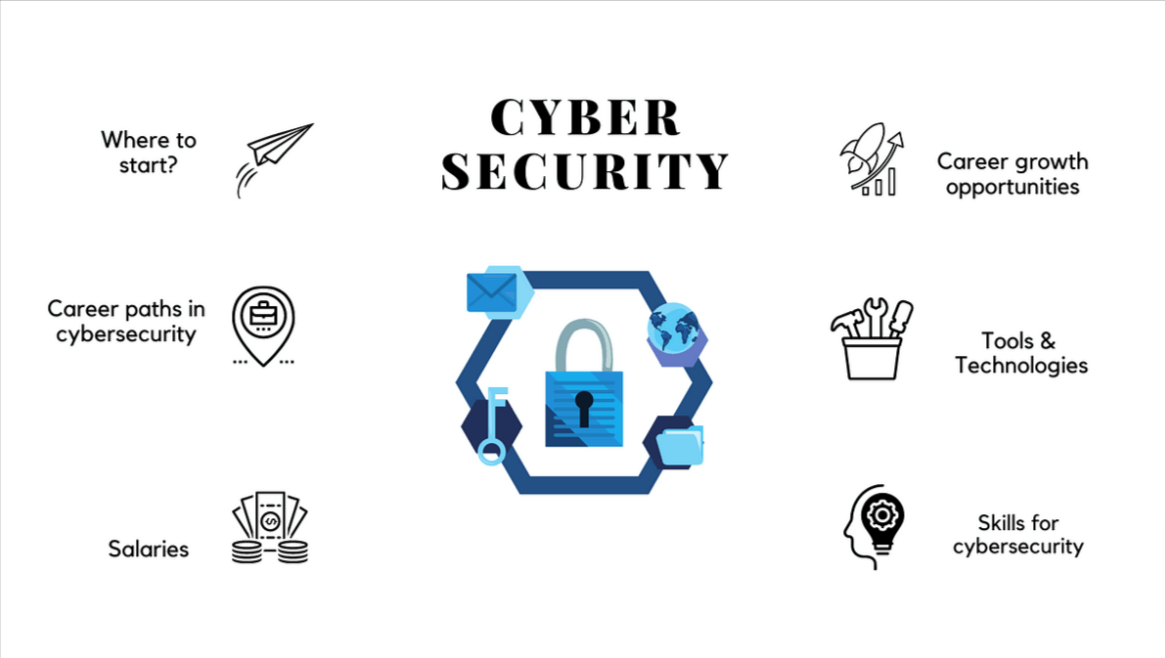As the digital landscape expands, the demand for skilled cybersecurity professionals remains at an all-time high. In 2024, the rapid pace of technological advancement has brought forth many challenges and opportunities in cybersecurity. From protecting sensitive data to thwarting sophisticated cyber threats, the role of cybersecurity experts has never been more crucial. Aspiring professionals must have a robust skill set tailored to the latest industry trends and emerging technologies to thrive in this dynamic field. This blog explores the top skills essential for a successful cybersecurity career in 2024, providing insights into the competencies needed to safeguard organizations and navigate the ever-changing cybersecurity landscape.
The cybersecurity industry is experiencing unprecedented growth fueled by the growing frequency and sophistication of cyber threats. As businesses increasingly rely on digital infrastructure, safeguarding sensitive data and systems has become paramount. Growing awareness of cybersecurity risks among organizations has created a surge in demand for skilled and qualified professionals capable of protecting against cyber attacks and mitigating vulnerabilities. Pursuing a cyber security course provides individuals with the necessary expertise and credentials to excel in this fast-growing landscape. With comprehensive training in threat detection, risk management, and ethical hacking, aspiring professionals can capitalize on lucrative career opportunities and contribute to the ongoing battle against cybercrime.
Cyber Security: Career Overview
The cybersecurity career landscape is burgeoning, fueled by the escalating threat of cyber attacks in an increasingly digital world. Organizations across industries are prioritizing cybersecurity, creating a high demand for skilled professionals capable of safeguarding data and systems. However, well-qualified cybersecurity professionals are scarce in meeting this demand, leading to lucrative opportunities for those with the requisite skills. With a diverse range of roles available, from ethical hacking to risk assessment, a career in cybersecurity offers both challenges and rewards for individuals passionate about protecting against cyber threats in today’s ever-evolving technological landscape.
Skills for a career in cyber security
Forensics: Cybersecurity forensics involves the investigation and analysis of digital evidence related to cyber incidents. Professionals in this field use techniques to recover, preserve, and examine data from compromised systems or networks to understand the extent of the breach, identify perpetrators, and support legal proceedings.
Analytics: Cybersecurity analytics involves the use of data analysis techniques to detect patterns, anomalies, and trends within network traffic, system logs, and security events. By analyzing large volumes of data, analysts can identify potential threats, assess risks, and prioritize security measures effectively.
Security Development: Security development refers to the process of designing, implementing, and testing secure software applications, systems, and protocols. Security developers integrate security features, such as encryption, authentication, and access controls, into software products to prevent vulnerabilities and protect against cyber threats.
Intrusion Detection System (IDS): IDS is a security tool that monitors network traffic and system activities for signs of unauthorized access, malicious activities, or security breaches. IDS alerts security teams to suspicious behaviour, enabling them to investigate and respond to potential threats promptly.
Networking and System Administration: Networking and system administration skills are essential for configuring, managing, and securing network infrastructure, servers, and endpoints. Professionals in this field understand network protocols, architectures, and system configurations to ensure secure and reliable network operations.
Knowledge of Operating Systems and Virtual Machines: Proficiency in various operating systems (e.g., Windows, Linux) and virtualization technologies (e.g., VMware, Hyper-V) is crucial for cybersecurity professionals. Understanding the security features and vulnerabilities of operating systems and virtual machines helps in securing computing environments effectively.
Cloud Security: Cloud security involves implementing security measures and best practices to protect data, applications, and infrastructure deployed in cloud environments. Professionals in this field ensure data confidentiality, integrity, and availability in cloud-based services, such as Infrastructure as a Service (IaaS), Platform as a Service (PaaS), and Software as a Service (SaaS).
Coding: Coding skills are valuable for cybersecurity professionals, especially for security developers and analysts. Proficient coding abilities enable professionals to develop and review secure software code, scripts, or automation tools, ensuring that applications and systems are resilient to cyber threats.
Blockchain Security: Blockchain security focuses on securing decentralized systems and digital transactions using blockchain technology. Professionals in this field understand the security principles and protocols of blockchain, such as cryptographic hashing, consensus mechanisms, and smart contract security, to mitigate risks associated with blockchain-based applications and platforms.
The Internet of Things (IoT): IoT security involves securing connected devices, networks, and platforms from cyber threats. Professionals in this field implement security measures, such as encryption, access controls, and firmware updates, to mitigate vulnerabilities in IoT devices and protect against unauthorized access, data breaches, and cyber-attacks.
These cybersecurity skills are essential for protecting digital assets, mitigating cyber risks, and maintaining the confidentiality, integrity, and availability of information in today’s interconnected and technology-driven world.
Importance of building cyber security skills

Building cyber security skills is crucial in today’s digital age where cyber threats are constantly evolving and becoming more sophisticated. Cyber security skills enable individuals to protect sensitive data, safeguard critical infrastructure, and mitigate the risks posed by cyber-attacks. By acquiring cybersecurity skills, individuals can contribute to maintaining the integrity, confidentiality, and availability of information systems, thereby ensuring business continuity and protecting against financial losses, reputational damage, and legal liabilities.
Pursuing a cyber security course provides a structured pathway for individuals to develop key cyber security skills effectively. These courses offer comprehensive training in network security, ethical hacking, cryptography, and risk management, equipping participants with the knowledge, tools, and techniques needed to address cybersecurity challenges effectively. Cybersecurity courses often include hands-on labs, real-world scenarios, and practical exercises to enhance skill application and readiness for cybersecurity roles in various industries.
Conclusion
The cyber security landscape in 2024 demands a diverse set of skills to combat evolving threats and protect digital assets effectively. From forensics to cloud security, the top skills highlighted are essential for aspiring cybersecurity professionals to succeed in this dynamic field. Pursuing a cyber security course provides a structured learning environment where individuals can acquire in-depth knowledge and hands-on experience in key areas of cybersecurity.
These courses offer practical training, industry-relevant curriculum, and certification opportunities that not only enhance technical expertise but also demonstrate proficiency to potential employers. By investing in cyber security education, individuals can develop the requisite skills and readiness to embark on a rewarding career path in cybersecurity, making a significant impact in safeguarding organizations against cyber threats in the digital age.
